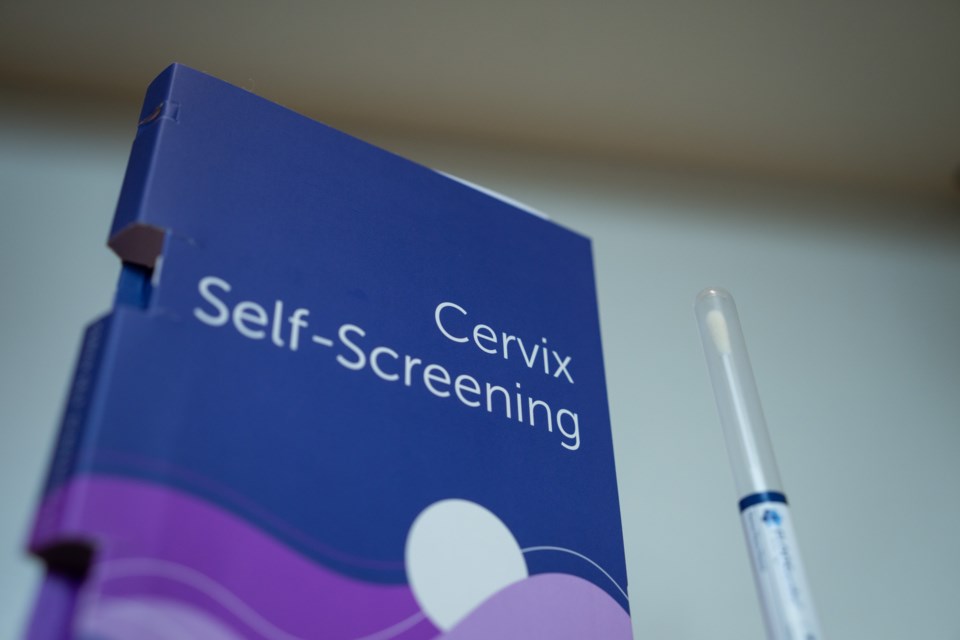A group of doctors say Canadian cancer screening guidelines set by a national task force are out-of-date and putting people at risk because their cancers aren't detected early enough.
"I'm faced with treating too many patients dying of prostate cancer on a daily basis due to delayed diagnosis," Dr. Fred Saad, a urological oncologist and director of prostate cancer research at the Montreal Cancer Institute, said at a news conference in Ottawa on Monday.
The Canadian Task Force on Preventive Health Care, established by the Public Health Agency of Canada, sets clinical guidelines to help family doctors and nurse practitioners decide whether and when to recommend screening and other prevention and early detection health-care measures to their patients.
Its members include primary-care physicians and nurse practitioners, as well as specialists, a spokesperson for the task force said in an email Monday.
But Saad and other doctors associated with the Coalition for Responsible Healthcare Guidelines, which organized the news conference, said the task force's screening guidelines for breast, prostate, lung and cervical cancer are largely based on older research and conflict with the opinions of specialists in those areas.
For example, the task force recommends against wide use of the prostate specific antigen test, commonly known as a PSA test, for men who haven't already had prostate cancer. Saad called that advice, which dates back to 2014, "outdated" and "overly simplistic."
The task force's recommendation is based on the harms of getting false positive results that lead to unnecessary biopsies and treatment, he said.
But that reasoning falsely assumes that everyone who gets a positive PSA test will automatically get a biopsy, Saad said.
"We are way beyond the era of every abnormal screening test leading to a biopsy and every biopsy leading to treatment," he said, noting that MRIs can be used to avoid some biopsies.
"Canadian men deserve (to) have the right to decide what is important to them, and family physicians need to stop being confused by recommendations that go against logic and evidence."
Dr. Martin Yaffe, co-director of the Imaging Research Program at the Ontario Institute for Cancer Research, raised similar concerns about the task force's breast cancer screening guideline, which doesn't endorse mammograms for women younger than 50.
That's despite the fact that the U.S. task force says women 40 and older may decide to get one after discussing the risks and benefits with their primary-care provider.
The Canadian task force is due to update its guidance on breast cancer screening in the coming months, but Yaffe said he's still concerned.
"The task force leadership demonstrates a strong bias against earlier detection of disease," he said.
Like Saad, Yaffe believes it puts too much emphasis on the potential harm of false positive results.
"It's very hard for us and for patients to balance this idea of being called back and being anxious transiently for a few days while things are sorted out, compared to the chance of having cancer go undetected and you end up either dying from it or being treated for very advanced disease."
But Dr. Eddy Lang, a member of the task force, said the harms of false positives should not be underestimated.
"We've certainly recommended in favour of screening when the benefits clearly outweigh the harms," said Lang, who is an emergency physician and a professor at the University of Calgary's medical school.
"But we're cautious and balanced and want to make sure that we consider all perspectives."
For example, some men get prostate cancer that doesn't progress, Lang said, but if they undergo treatments they face risks including possible urinary incontinence and erectile dysfunction.
Lang also said the task force monitors research "all the time for important studies that will change our recommendations."
"And if one of them comes along, we prioritize the updating of that particular guideline," he said.
The Canadian Cancer Society pulled its endorsement from the task force's website in December 2022, saying it hadn't acted quickly enough to review and update its breast cancer screening guidelines to consider including women between 40 and 50.
"(The Canadian Cancer Society) believes there is an obligation to ensure guidelines are keeping pace with the changing environment and new research findings to ensure people in Canada are supported with preventative health care," it said in an emailed statement Monday evening.
Some provinces have implemented more proactive early detection programs, including screening for breast cancer at younger ages, using human papillomavirus (HPV) testing to screen for cervical cancer and implementing CT scanning to screen for lung cancer, doctors with the Coalition for Responsible Healthcare Guidelines said.
But that leads to "piecemeal" screening systems and unequal access across the country, said Dr. Shushiela Appavoo, a radiologist with the University of Alberta.
Plus, many primary-care providers rely on the national task force guidelines in their discussions with patients, she said.
"The strongest association ... with a woman actually going for her breast cancer screen is whether or not her doctor recommends it to her. So if her doctor is not recommending it to her, it doesn't matter what the provincial guideline allows," Appavoo said.
In addition to updating its guideline for breast cancer screening this spring, the task force is due to review its guidelines for cervical cancer screening in 2025 and for lung cancer and prostate cancer screening in 2026, according to its website.
This report by The Canadian Press was first published April 16, 2024.
Canadian Press health coverage receives support through a partnership with the Canadian Medical Association. CP is solely responsible for this content.
Nicole Ireland, The Canadian Press



